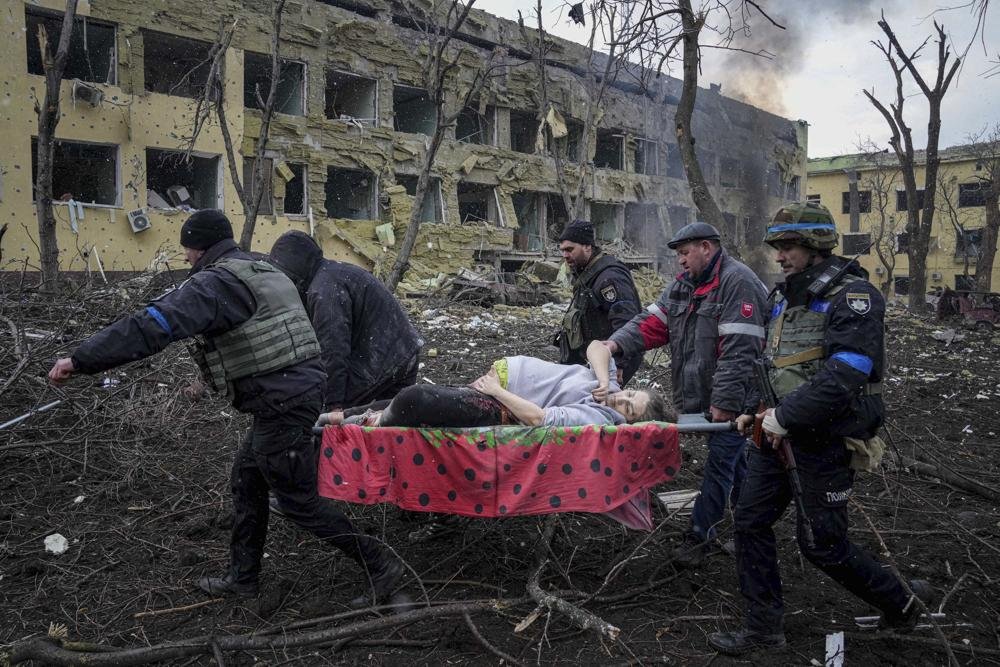Evgeniy Maloletka
Illustration by Daria Filippova
As Ukraine continues to battle for its sovereignty, we continue to chronicle Ukrainians.
On February 24th, 2022, Russia invaded Ukraine. Many journalists in the country migrated west to Kyiv at the start of the war. Evgeniy Maloletka, Ukrainian photojournalist, was among a few who went to Mariupol, a Southeastern city on the coast of Azov Sea, that was encircled by Russians almost immediately. Innocent Mariupol civilians went on to suffer months of horrific bombardment. Today, the world knows about the atrocities in Mariupol largely because of Evgeniy’s films and photographs. We asked him:
Where are you now and what's keeping you there?
I am in Ukraine. I was abroad showing my works in a few countries. Now I’ve returned to continue telling the whole world what I’ve been recounting for the last 8 years. That is, I’m showing what Russian aggression does to Ukrainian people- how it kills them, how innocent, civil people suffer, and how occupation destroys all things Ukrainian. There is no question about how necessary it is to film in a combat zone. I always have a goal in mind – to tell the world how the war influences all of us: our families, our loved ones and just regular people – mothers, warriors who die, and kids who suffer.
By now you have seen unimaginable atrocities, how do you cope?
I’ve returned from Kherson, where I was working on the topic of war crimes. I saw what Russia’s been doing to Kherson for the last 9 months. Each time it is hard to look. It’s hard to look at shattered buildings, people’s homes, that have been completely destroyed. Whole families are ruined. I’ve seen people who have endured several tortures: electrocution, beating, rape, injuries of the head, limbs, broken ribs, etc. Such things are beyond comprehension. A man, as old as my father, didn’t want to give his car to the occupants, and because of this they broke his skull, broke his ribs and broke his hip bone. He could only remember his name after the beating. Russian invaders totally ruined his life. A friend who was with him was tortured for more than a month. You can’t just stand aside and be silent about that. And our work is to keep documentation for the world of what Russia does. They terrorize locals and demonstrate that their soldiers can do anything and get away with it.
Which of your photos would you like to share with us and why?
I can share a lot of pictures, but these images can’t be looked at through the prism of preferences. Documentary differs from art in this way. Rather, it is about evidence, truth. It’s about us, our lives and what we are living through while being here. Everyone here is at war. There is memory in these people’s eyes. This documentary effort reveals what people at war are going through. And I need to show these works not only in Ukraine but also abroad. Sometimes we send our editors even more horrible photos, photos which need a balanced delivery. We can't publish some horrific photos - even I, the photographer, am terrified to look at them. We try to show our works harshly but present them in a little bit more balanced way, softening reality. You can’t show some images head-on - not every viewer can look at them. Sometimes demonstrations of dead bodies of soldiers or locals can cause a very bad reaction. We don’t show every horrific detail.
First thing you'll do once the war is over?
I have been covering the war for 8 years, I am covering it now – and it is hard for me to say when this nightmare will be over. I’d like to believe soon. If such a moment comes, probably I would like to hug my loved ones and say “We won!”. But I am always skeptical, and partly pessimistic. So at this moment I won’t be guessing ahead of time and will be hoping for the best, but preparing for the worst. When the war is over there will be a colossal amount of work to do in Ukraine. The number of stories to be told is huge. Documentation of past events and the post-conflict situation will be a massive undertaking. Also, we will need to process the materials that were already created and make follow-ups on how people are living after the war.
Favorite Ukrainian author?
I like works of Ukrainian classics: Oleksandr Chekmenev, Sasha Hliadielov, Maksym Dondiuk, Oleksii Furman, Hlib Hranych. Also, young authors deserving attention in Ukraine: Kostia Liberov, Slava Rotynskyi and others. Hard to recall everyone now, but there is a very good school of photography in Ukraine. If we talk about the already accomplished generation of photographers there is one layer, but also there are a lot of young people just starting and we need to encourage their development. I think the potential of Ukrainian photojournalism is immense. Of course, it is not France, but we all develop and everyone learns from our western colleagues as well as from experienced Ukrainian photographers.
Mariupol, Ukraine by Evgeniy Maloletka for AP News.
Follow Evgeniy
Please consider a contribution to our publication, of any size here. Your funds will be spent on commissioning local creatives.



